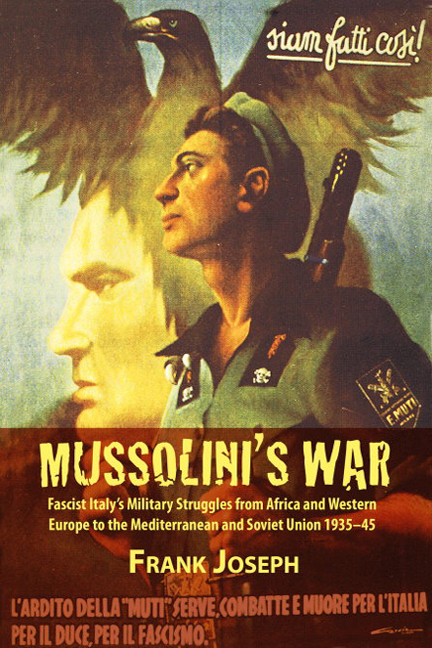
Mussolini's War PDF
Preview Mussolini's War
Among the great misconceptions of modern times is the assumption that Benito Mussolini was Hitler's junior partner, who made no significant contributions to the Second World War. That conclusion originated with Allied propagandists determined to boost Anglo-American morale, while undermining Axis cooperation. The Duce's failings, real or imagined, were inflated and ridiculed; his successes, pointedly demeaned or ignored. Italy's bungling navy, ineffectual army - as cowardly as it was ill-equipped - and air force of antiquated biplanes were handily dealt with by the Western Allies. So effective was this disinformation campaign that it became post-war history, and is still generally taken for granted even by otherwise well-informed scholars and students of World War Two. But a closer examination of recently disclosed, and often neglected, original source materials presents an entirely different picture.They shine new light, for example, on Italy's submarine service, the world's greatest in terms of tonnage, its boats sinking nearly three-quarters of a million tons of Allied shipping in three years' time. During a single operation, Italian 'human torpedoes' sank the battleships HMS Valiant and Queen Elizabeth, plus an eight-thousand-ton tanker, at their home anchorage in Alexandria, Egypt. By mid-1942, Mussolini's navy had fought its way back from crushing defeats to become the dominant power in the Mediterranean Sea. Contrary to popular belief, his Fiat biplanes gave as good as they got in the Battle of Britain, and their monoplane replacements, such as the Macchi Greyhound, were state-of-the-art interceptors superior to the American Mustang. Savoia-Marchetti Sparrowhawk bombers accounted for seventy-two Allied warships and one hundred-ninety-six freighters before the Bagdolio armistice in 1943. On 7 June 1942, infantry of the Italian X Corps saved Rommel's XV Brigade near Gazala, in North Africa, from otherwise certain annihilation, while horse-soldiers of the Third Cavalry Division Amedeo Duca d'Aosta defeated Soviet forces on the Don River before Stalingrad the following August in history's last cavalry charge. As influential as these operations were on the course of World War Two, more potentially decisive was Mussolini's planned aggression against the United States' mainland. Postponed only at the last moment when its conventional explosives were slated for substitution by a nuclear device, New York City escaped an atomic attack by margins more narrow than previously understood. It is now known that Italian scientists led the world in nuclear research in 1939, and a four-engine Piaggio heavy bomber was modified to carry an atomic bomb five years later.These and numerous other disclosures combine to debunk lingering propaganda stereotypes of an inept, ineffectual Italian armed forces. That dated portrayal is rendered obsolete by a true-to-life account of the men and weapons of Mussolini's War.
